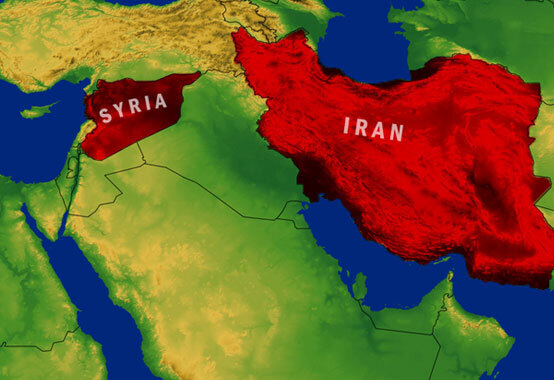Syria, a huge capacity for Iranian construction, engineering services exports

TEHRAN – Over the past few years and since the end of the war in Syria, Tehran, and Damascus have been taking major steps for expansion of mutual trade ties, and considering Syria’s efforts for reconstructing the country’s war-torn infrastructures, the construction sector has been one of the major areas that Iran has been focusing on for the expansion of ties with the Arab country.
Head of Iran-Syria Joint Chamber of Commerce Keyvan Kashefi has said that currently, commodity items in the fields of housing construction, bridge and dam construction, electricity supply, and technical and engineering services are at the top of the list of exports to this country.
According to Kashefi, the trade between the two countries has been following an upward trend over the past Iranian calendar year (ended on March 20) and the two sides’ trade balance stood at $170 million in the said year.
The figure is expected to increase to over $300 million in the current Iranian calendar year, according to the official.
Syria has repeatedly expressed eagerness for the participation of Iranian companies in the country’s reconstruction projects and has invited private and public entities from Iran to join the Syrian government in reconstructing the country’s infrastructure. The Islamic Republic, on the other hand, has also been taking serious steps in this regard.
Last week, Head of Iran’s Trade Promotion Organization (TPO) Alireza Peyman-Pak said the country has allocated a special budget of $50 million to support the Iranian export companies active in the Syrian market.
“Iran and Syria have good political relations and we must use this opportunity to encourage the private sector and our businessmen to enter the Syrian market,” Alireza Peyman Pak told the national TV.
Referring to a visit to Syria by a delegation headed by Industry, Mining and Trade Minister Reza Fatemi Amin in late November, he said: “During the visit to Damascus, we were mainly looking for ways to pave the way for the private sector to expand trade with this country.”
The official noted that the TPO has it on the agenda to establish offices for promoting barter trade with not only Syria but also all other neighboring countries.
“Syria imports $4 billion [of goods] annually and exports $800 million,” Peyman Pak said.
Iran and Syria also signed four documents to boost cooperation in the fields of trade and industry during the visit of the Iranian delegation to Damascus.
The documents were inked at the end of the two countries’ second Joint Economic Committee meeting which was held in the Syrian capital.
Since the first Iran-Syria Joint Trade Committee in late August 2019, the two sides have exchanged numerous trade delegations for discussing mutual cooperation.
Iranian private companies are now providing construction materials to Syria and are working on several major reconstruction projects in the country.
However, despite all the mentioned improvements in the two countries' trade ties, the level of trade is far from the potentials and capacities of the two countries.
Head of Iran-Syria Joint Chamber of Commerce believes that the value of Iran's trade with Syria should have reached $1 billion in the current Iranian calendar year.
“We are far away from our trade targets,” he said, adding: “Plans must be implemented to see the improvement of trades with this country.”
“Exporting raw materials, steel and petrochemicals to Syria can lead to an increase in the level of trade between the two sides because Syria currently needs raw materials and by sending such items Iran can secures the market for the coming years,” according to Kashefi.
Referring to the lack of infrastructure for trade between the two countries, he said: "In cases such as transportation, Turkey has advantages over Iran due to its neighborhood with Syria."
Iran does not share a border with Syria and has not been able to benefit from the Iraqi border for expanding trade with Syria, he regretted.
Since, there is also no regular shipping line between the two countries, the Islamic Republic plans to benefit from the capacities of the country’s private sector to invest in establishing shipping lines between the two countries.
Economic forecasts indicate a doubling of trade between Iran and Syria in the current year (2021), this is while sanctions have slowed down the process of this trade growth.
EF/
